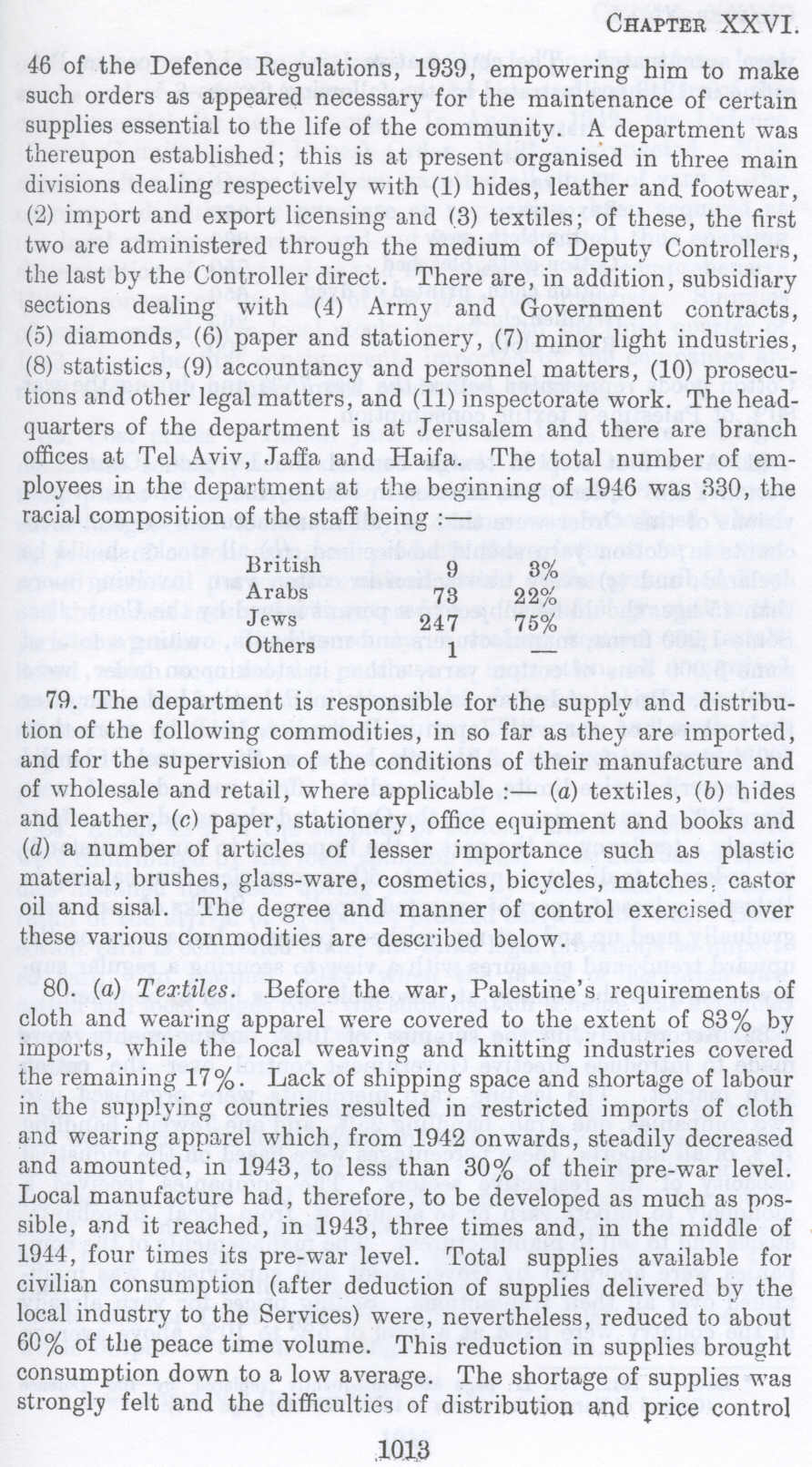| Prev | Next |  |
| Prev | Next |
| PalestineRemembered | About Us | Oral History | العربية | |
| Pictures | Zionist FAQs | Haavara | Maps | |
| Search |
| Camps |
| Districts |
| Acre |
| Baysan |
| Beersheba |
| Bethlehem |
| Gaza |
| Haifa |
| Hebron |
| Jaffa |
| Jericho |
| Jerusalem |
| Jinin |
| Nablus |
| Nazareth |
| Ramallah |
| al-Ramla |
| Safad |
| Tiberias |
| Tulkarm |
| Donate |
| Contact |
| Profile |
| Videos |
British Mandate: A Survey of Palestine: Volume II - Page 1013 |
Disclaimer
The above documents, article, interviews, movies, podcasts, or stories reflects solely the research and opinions of its authors. PalestineRemembered.com makes its best effort to validate its contents.


Post Your Comment
*It should be NOTED that your email address won't be shared, and all communications between members will be routed via the website's mail server.
46 of the Defence Regulations, 1939, empowering him to make such orders as appeared necessary for the maintenance of certain supplies essential to the life of the community. A, department was thereupon established; this is at present organised in three main divisions dealing respectively with (1) hides, leather and footwear, (2) import and export licensing and (3) textiles; of these, the first two are administered through the medium of Deputy Controllers, the last by the Controller direct. There are, in addition, subsidiary sections dealing with (4.) Army and Government contracts, (5) diamonds, (6) paper and stationery, (7) minor light industries, (8) statistics, (9) accountancy and personnel matters, (10) prosecutions and other legal matters, and (11) inspectorate work. The headquarters of the department is at Jerusalem and there are branch offices at Tel Aviv, Jaffa and Haifa. The total number of employees in the department at the beginning of 194.6 was 330, the racial composition of the staff being :-
British Arabs Jews Others
9 73 247 1
3% 22% 75%
79. The department is responsible for the supply and distribution of the following commodities, in so far as they are imported, and for the supervision of the conditions of their manufacture and of wholesale and retail, where applicable :- (a) textiles, (b) hides and leather, (c) paper, stationery, office equipment and books and (d) a number of articles of lesser importance such as plastic material, brushes, glass-ware, cosmetics, bicycles, matches: castor oil and sisal. The degree and manner of control exercised over these various commodities arc described below.
80. (a) Textiles. Before the war, Palestine's requirements of cloth and wearing apparel were covered to the extent of 83% by imports, while the local weaving and knitting industries covered the remaining 17%. Lack of shipping space and shortage of labour in the supplying countries resulted in restricted imports of cloth and wearing apparel which, from 1942 onwards, steadily decreased and amounted, in 1943, to less than 30% of their pre-war level. Local manufacture had, therefore, to be developed as much as possible, and it reached, in 1943, three times and, in the middle of 1944, four times its pre-war level. Total supplies available for civilian consumption (after deduction of supplies delivered by the local industry to the Services) were, nevertheless, reduced to about 60% of the peace time volume. This reduction in supplies brought consumption down to a low average. The shortage of supplies was strongly felt and the difficulties of distribution and price control
1013